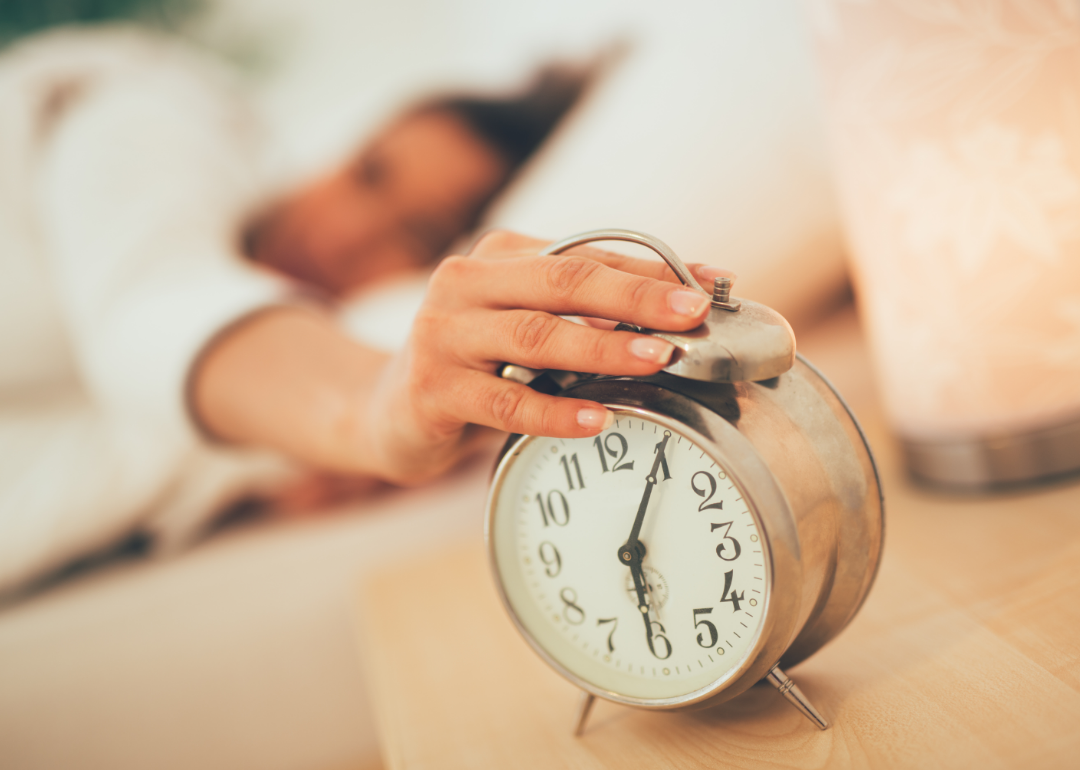
This story originally appeared on Sunday Citizen and was produced and distributed in partnership with Stacker Studio.
10 ways remote work has affected sleep
Few people would disagree that sleep is precious, especially when it’s elusive. Sleep refreshes and recharges, and it helps the body stay healthy. It also enables clear thinking, memory, and concentration.
In 2020, the spread of COVID-19 forced people around the world to stay home and work. Amid all the disruption, one of the often-heard complaints was that people had trouble falling asleep, staying asleep, and generally not getting enough sleep altogether. Sunday Citizen compiled facts and statistics on how remote work has affected sleep, especially over the past year, using 2020 data from health news publications, scientific journals, and surveys that looked into the effects of remote work on different aspects of life.
The body’s internal clock controls the cycle of wakefulness and sleep, and that cycle can be affected by light, stress, poor health, and more. Most people need between seven to nine hours of sleep each day. That sleep includes four stages—three stages of non-rapid eye movement (NREM) and then rapid eye movement (REM) sleep. The body is most relaxed during the third NREM stage, when the heartbeat, breathing, and brain wave activity slow down. During REM sleep, breathing, the heart rate, and blood pressure increase. Dreaming typically occurs during REM sleep, which also is believed to be the time for memory consolidation, when experiences are converted into memories. The four stages repeat during a night’s sleep, and each typically lasts 90 to 120 minutes.
Continue reading to learn about how the shift to remote work has had an impact on sleep.
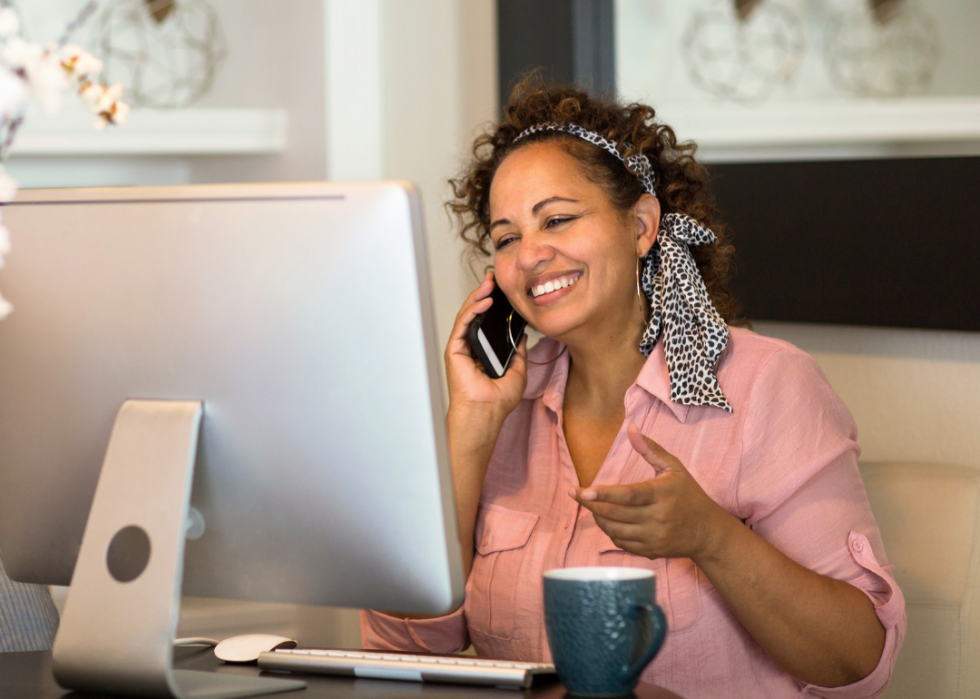
At least 30% of all workers transitioned to remote work in 2020
With some 15% of workers already clocking in from home, the addition of those at home due to the coronavirus brought the figure up to nearly half of all workers, according to June 2020 data from the National Bureau of Economic Research. Such a change in routine can affect sleep as people adjust to different schedules, may have to put their makeshift home offices in their bedrooms, or don’t take informal breaks with colleagues like they did working in an office.
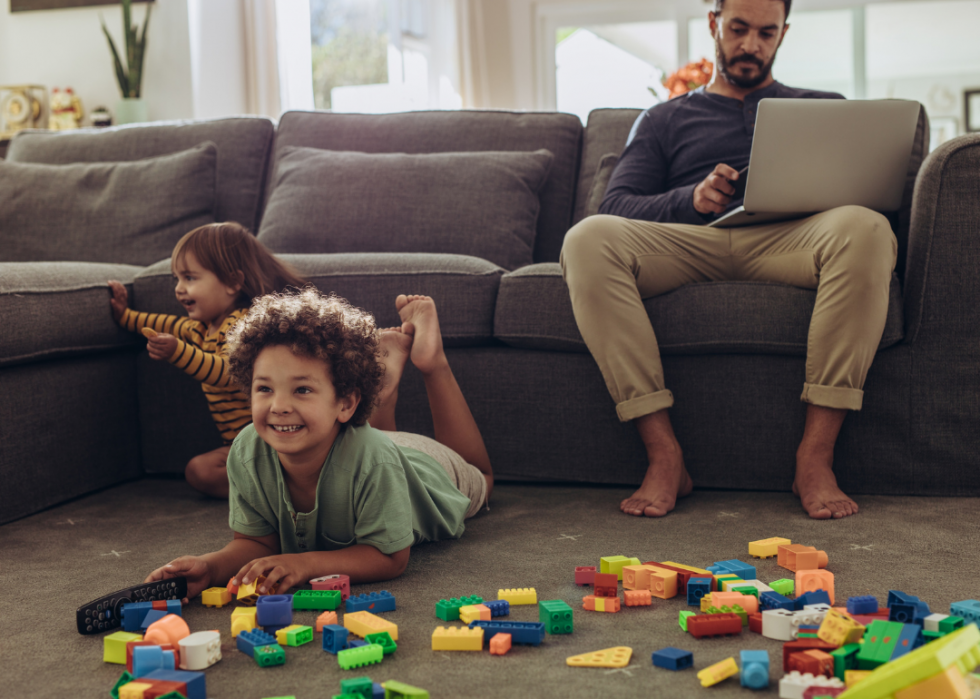
Some parents combined work with child care, resulting in less time for sleep
Having children studying from home adds to the responsibilities of parents who already may have had their hands full dealing with the impacts of the pandemic. Research shows that the changes to schedules and routines involved with home-schooling children, along with less time out of the home and less social interaction, can take a major toll on sleep.
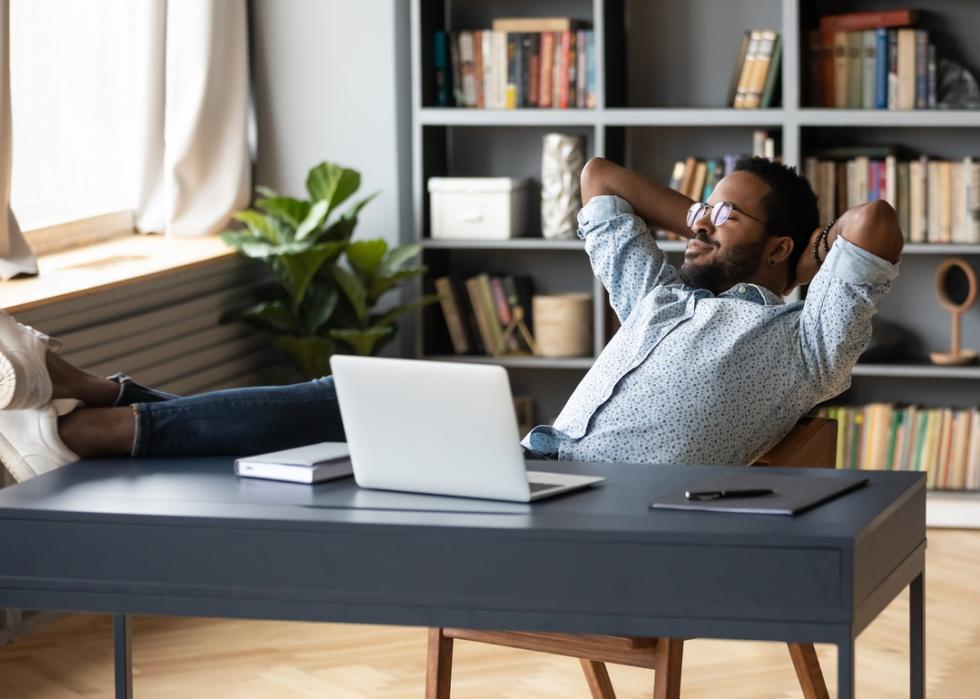
Remote work blurred the lines between having a workplace and a place to rest
Remote employment may disrupt a barrier between working and relaxing. It’s generally recommended that a designated workspace be used only during working hours, and that if possible, a bedroom should not be used for working. It’s not good for productivity or posture.
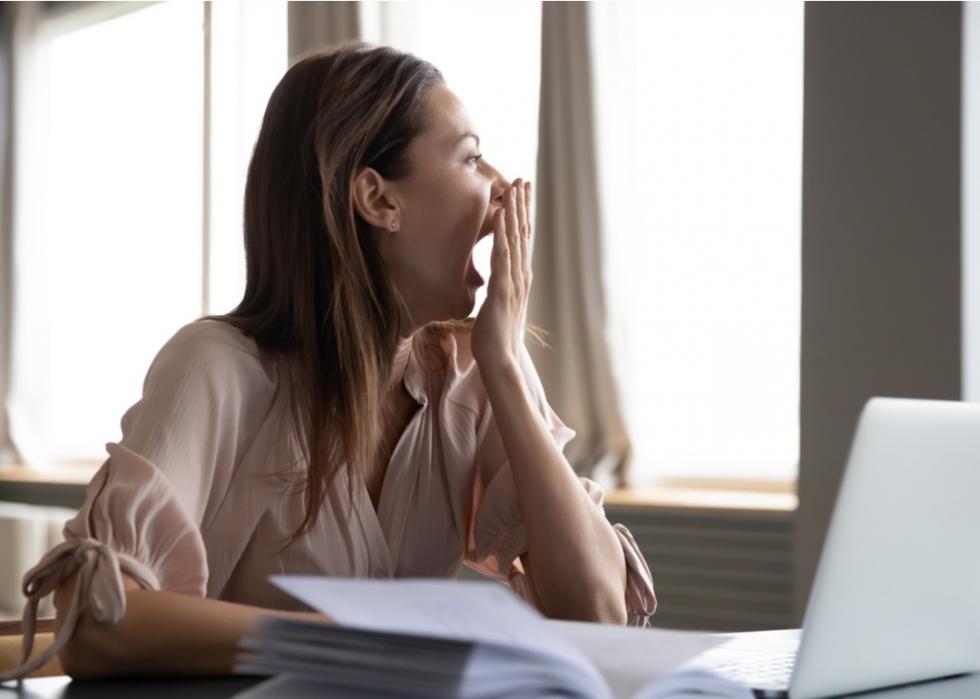
Pressure at work and poor sleep can negatively impact each other
Research from the Better Sleep Council shows that workers who say they are poor sleepers are 1.5 times more likely to say they are feeling under pressure at work. They also are twice as likely not to feel valued at work, more than twice as likely not to enjoy their work, and three times more likely to say they do not work in a friendly environment.
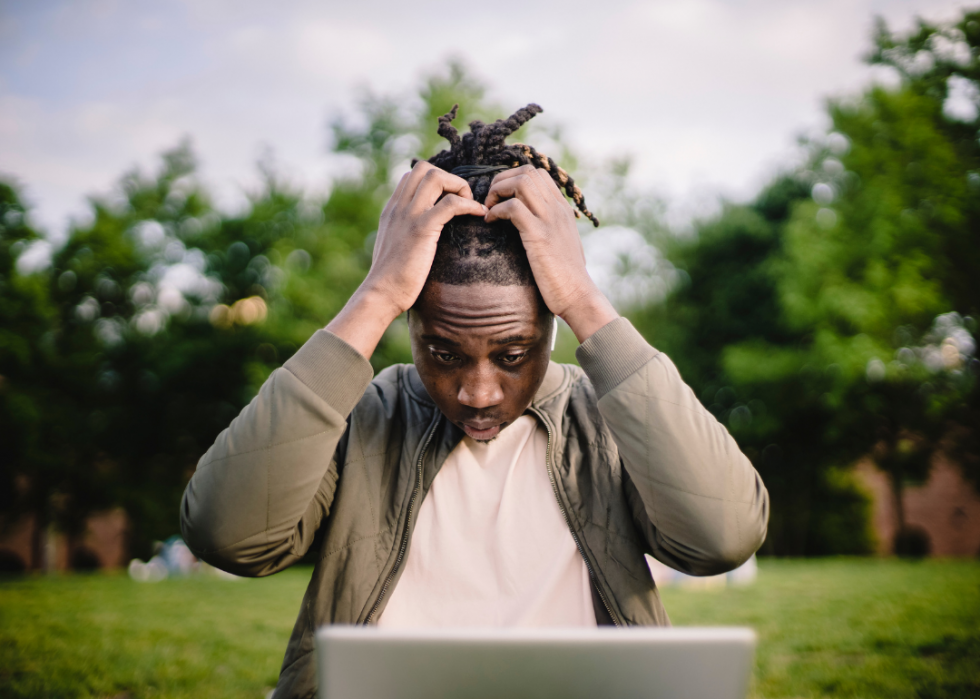
Too much news and technology consumption can keep people from falling asleep
General anxiety, and consuming too much news and technology, kept people awake throughout the pandemic, according to research collected by the Sleep Cycle app. Working-age people also reported that concerns about their job and personal finances prevented them from getting rest, as did working longer and later hours.
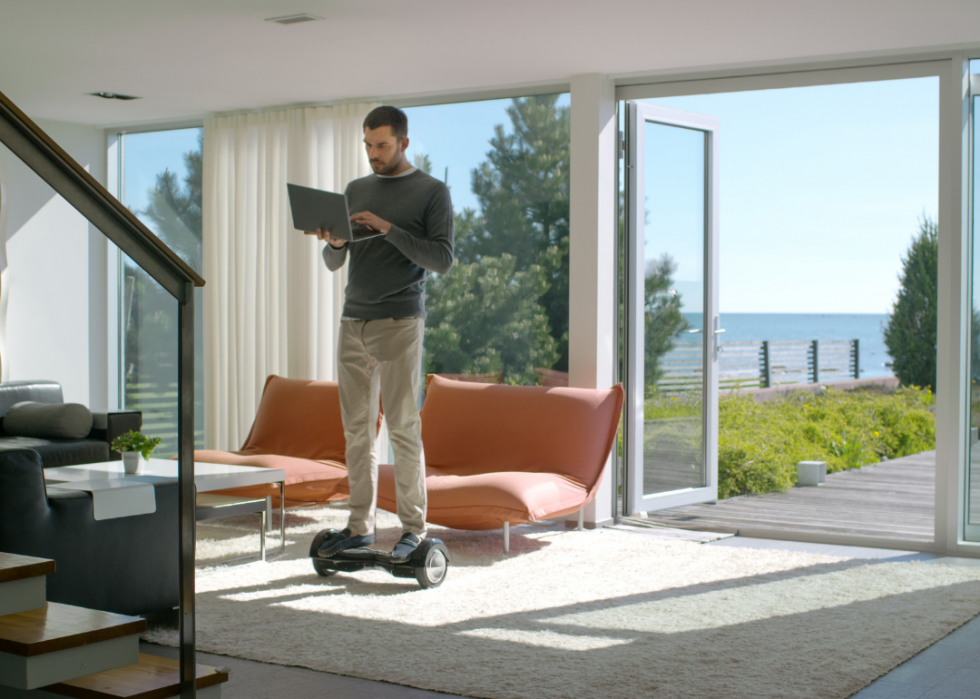
Less commuting time and more independence have improved sleep quality in some people
While working remotely, less commuting leaves more time for other activities such as exercise or family time. Pre-pandemic research in Sweden found that full-time workers commuting more than 30 minutes to work each day were 25% more likely to have an inactive lifestyle and a 6% higher chance of having sleep problems than those with shorter commutes.
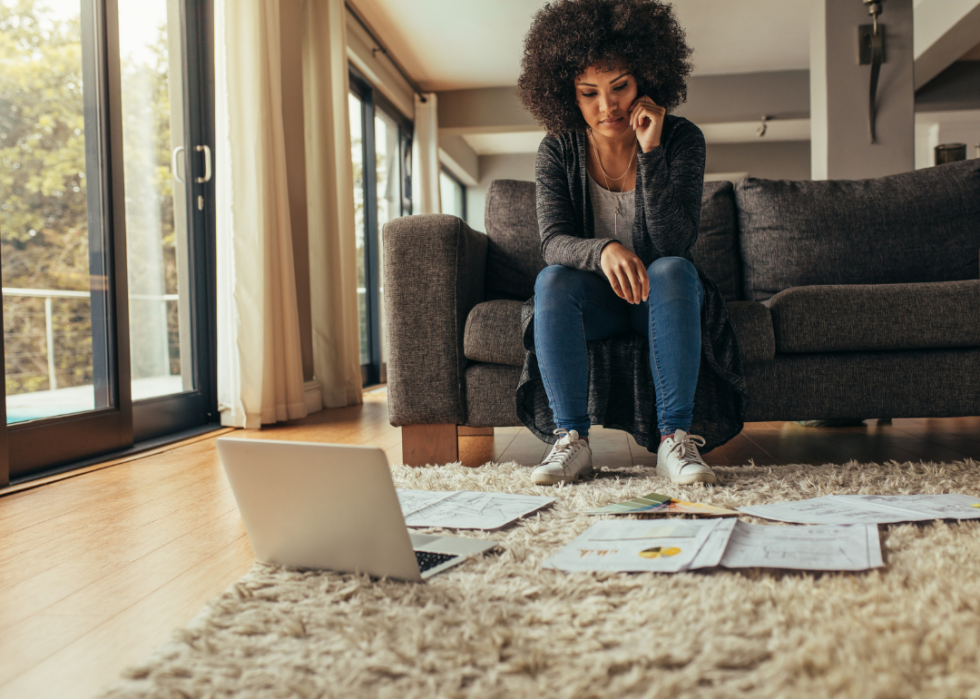
Over 50% of people surveyed want to continue working from home post COVID-19 outbreaks
Along with those who want to keep working from home post-pandemic, a third say they would like to work from home some of the time, and about one in 10 say they never or rarely want to work from home again. Those who like it say they appreciate the flexibility and have a better work-life balance.

‘Zoom fatigue’ is not as prevalent as it may seem ...
A study conducted by Pew Research, released in December 2020, showed that about two-thirds of people who use video conferencing are fine with the time they do so, and about a third say it has worn them out. Those with so-called Zoom fatigue may be in the minority, but the phenomenon is real. Experts say it stems from having to work harder to read people’s expressions via computer, spending energy to appear engaged, and straining to listen, especially when there are computer delays.
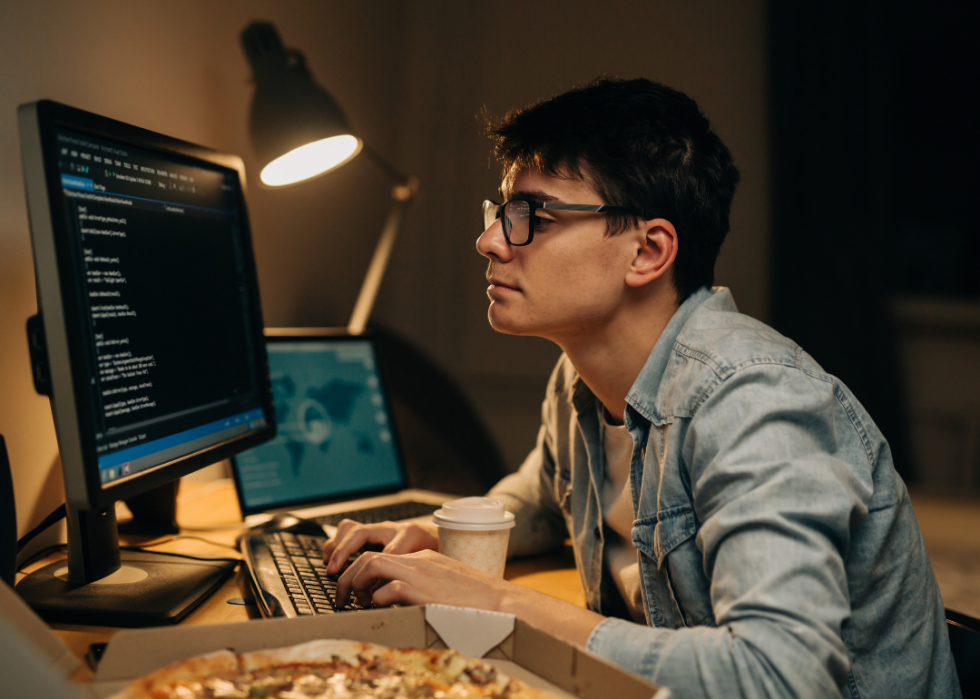
… but increased screen time can have negative effects on sleep quality
Research shows that the kind of blue light emitted from computer, phone, and tablet screens reduces or delays the body’s production of melatonin that is critical to falling asleep. Experts recommend putting devices like cell phones away at least a half hour before bedtime. They also suggest putting cell phones in another room to limit the temptation to check them during the night.
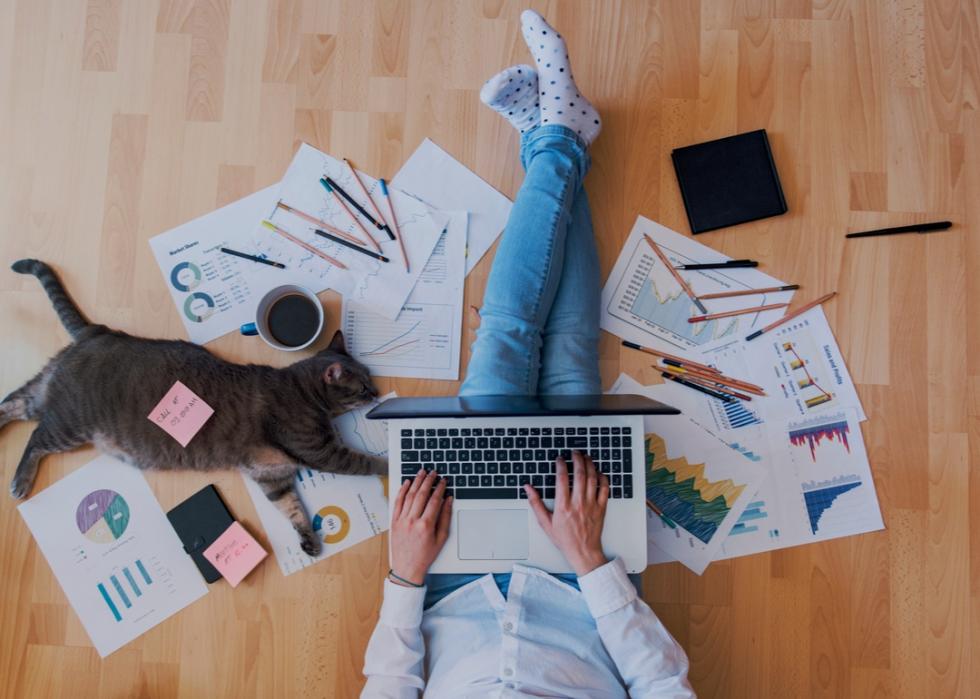
Lack of leisure activities can also negatively affect sleep
Sleep studies have found that adults who consider themselves poor sleepers are less likely than excellent sleepers to value meeting new people, exercising, and attending cultural events. Those who said they slept poorly also said they valued activities like sports and gardening less than those who considered themselves excellent sleepers.



